Hamilton in winter is rugby’s version of a Monday night in Stoke, the measuring stick people used to determine whether Arsene Wenger had unearthed the next Thierry Henry or just another Gervinho.
Stoke was a leveller, where rain fell from the skies, fans delivered verbals and shaven-headed defenders planted studs onto ankles. ‘Welcome to Stoke,’ they’d say. No visiting player ever made their name there but plenty lost their reputation.
Hamilton, when the evening sky is black, is like that. It is where we witnessed the All Blacks score 60 points against Fiji, 57 against Argentina, 55 against Wales, 64 against Italy. This was also where the Maori All Blacks beat the British and Irish Lions.
If you can survive in this town then the cities, stadiums and occasions get bigger. But not everyone comes through the Waikato experience unscathed. This is where an international career can end as well as start.
Ask Michael Lowry or James Hume. It is approaching two years since they were in Waikato for the first night of Ireland’s 2022 tour of New Zealand, two of eight hopefuls auditioning for a role in an Andy Farrell production.
After Hamilton, Hume and Lowry faded into smaller shows off Broadway, while the remaining performers did enough to receive a call when a regular cast member was off.
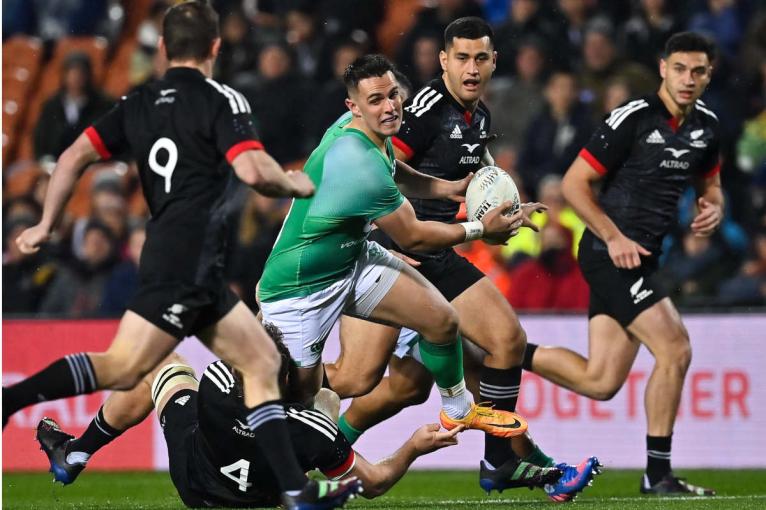
And then there was Joe McCarthy. These days centre stage belongs to him; Hamilton in June, 2022, the time he convinced Farrell he deserved a brighter spotlight.
The whole point of this little story is that McCarthy’s player of the match performance in last Friday’s Six Nations opener against France was two years in the making.
“We want to see if we can unearth a few gems,” Farrell explained at the outset of that tour, one he had deliberately extended from a three-Test series into a five-match tour, with two midweek Maori games being de-facto Tests.
By the time the trip was over, with an Irish series victory written into the history books, Farrell was asked if he ever doubted whether he’d taken too much on. “Every day, but that was the point,” he replied, saying how he wanted to see whether he had people who just go ‘tunnel vision’ and start worrying about themselves instead of being ‘team first’.
Joined up thinking between the provinces and the national team, the coach and his paymasters, is a hallmark of Ireland’s consistency over the last 24 years. But it wasn’t always this way.
A few months later, he unearthed another surprise, putting a few provincial noses out of joint by inserting a mini tour to South Africa into the calendar where he could run his eye over an Irish development squad. This was where Jack Crowley emerged and when panic about life after Johnny Sexton began to fade.
That’s Farrell for you. Beyond the alpha male persona lies a deep thinking strategist, a visionary who’s always planning ahead. What happened last Friday, when Ireland delivered a record away win over France, was no accident. Then again, nothing Ireland has achieved in the 24 years of this century has been.
Joined up thinking between the provinces and the national team, the coach and his paymasters, is a hallmark of Ireland’s consistency over the last 24 years. But it wasn’t always this way.
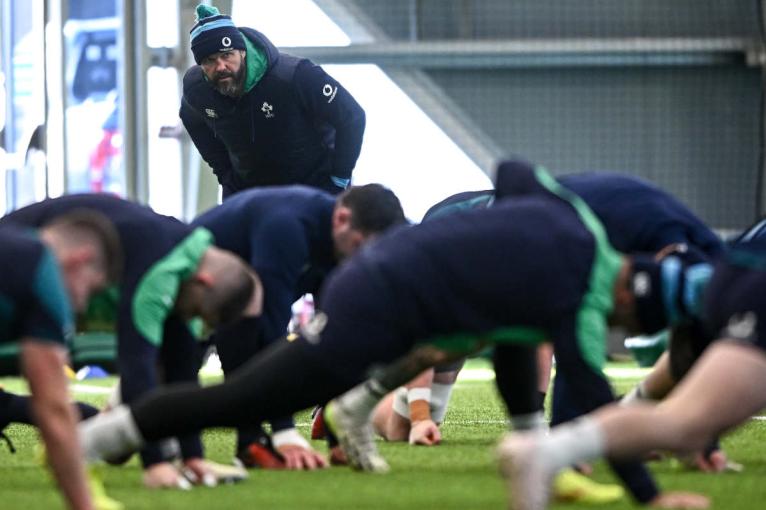
The players were so accustomed to defeat then that on the eve of the 1999 World Cup, the then coach, Warren Gatland, arranged for a sports psychologist to speak to them. “Who here believes you can win this tournament?” the squad was asked. Keith Wood was the only one to put up his hand.
You can understand why.
Throughout the twentieth century, Ireland were consistently the worst of the best, gathering more wooden spoons than anyone else in the Five Nations, winning the fewest Grand Slams and Triple Crowns.
Ireland have won five out of their last six against Australia, eight out of 12 against South Africa, five out of nine against New Zealand, four in a row against England, 20 out of 24 Six Nations games against Scotland. Irish rugby has evolved from followers into leaders.
No one could have foreseen then what has happened since. Friday’s 38-17 win was Ireland’s third win away to France in 10 years. Remember they went from 1952 to 2000 recording just one victory in Paris.
That isn’t the only evidence of a dramatic upturn. Throughout the twentieth century Ireland won four Triple Crowns and one Grand Slam. Since the Millennium, they have picked up seven Crowns and three Slams.
And there’s more.
It took them 111 years to finally take New Zealand’s scalp while they went 23 years without a win over the Wallabies, 49 years without one against the Springboks.
Now look at them. Ireland have won five out of their last six against Australia, eight out of 12 against South Africa, five out of nine against New Zealand, four in a row against England, 20 out of 24 Six Nations games against Scotland.
Once the weakest Tier 1 Nation, Irish rugby has evolved from followers into leaders.
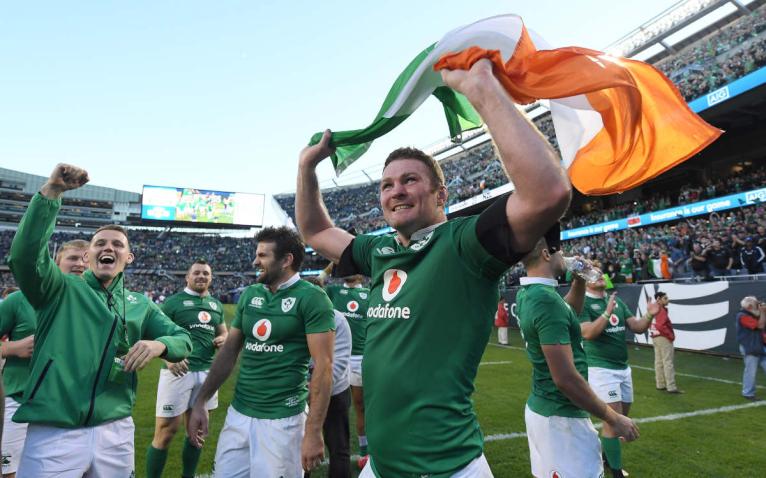
That’s why Friday’s victory was no surprise because all the nuances of the win – the jealous protection of the ball; the ability to cut open a Shaun Edwards defence; the fact Ireland finished the game with 15 men as opposed to France’s 14 – has long been planned.
First there’s the issue of discipline. Ireland possess it, many of their opponents do not.
“Some teams play on the edge; we like to keep a low penalty count,” Farrell said during that New Zealand tour.
It seemed a minor point. But an examination of the record books backed up his assertion. Across the previous 15 games, Ireland had conceded more than 10 penalties in any particular game on just three occasions. They had one sin-binning in the seven games leading up to that series win in New Zealand, their opponents six. Good behaviour has led to good results.
They have kept on coming; Friday’s win a record for Ireland away to France. Two years ago, the 32-15 win in Twickenham was also by a record score. The second Test in Dunedin, 2022, was their first away win over the All Blacks.
No other country in world rugby monitors its players’ game-minutes as studiously as the IRFU, a policy O’Sullivan introduced after watching his exhausted side exit the 2003 World Cup at the quarter-final stage, one honed by Schmidt, when he took office a decade later.
And on each occasion it was against 14 players, which their opponents used as an excuse, even though maintaining discipline and composure is a skill, an underrated one, perhaps, but critical to a team’s success.
Ireland have it, partly because of the quality of their current coaches, but also because of the legacies left behind by two of Farrell’s predecessors, Eddie O’Sullivan and Joe Schmidt.
No other country in world rugby monitors its players’ game-minutes as studiously as the IRFU, a policy O’Sullivan introduced after watching his exhausted side exit the 2003 World Cup at the quarter-final stage, one honed by Schmidt, when he took office a decade later.
The result is career longevity. Sexton, at 38 years and 92 days, became Ireland’s oldest international last year. Cian Healy, at 36, is still going and was there as a replacement for Andrew Porter in Friday’s victory.
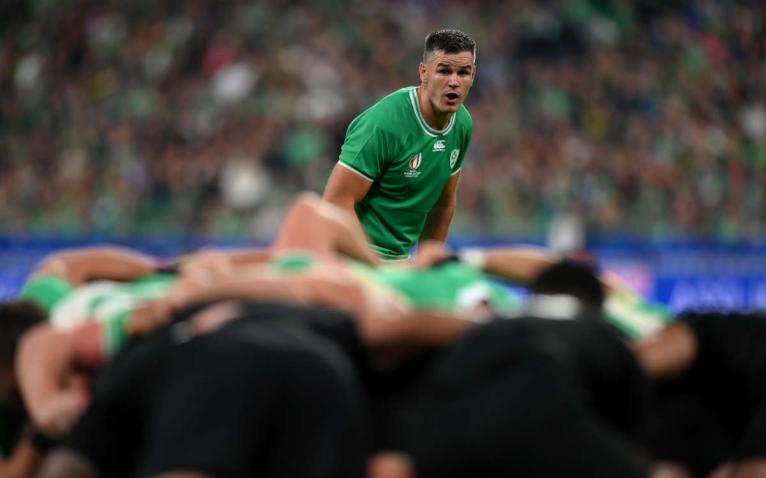
Unlike England, few Irish players are tempted away to France, even though the money is better there, largely because of the less arduous timetable at home. Wrapped in cotton wool and forced into prolonged breaks following World Cups or summer tours, Ireland’s fitness frequently manifests itself in the second half of games, the third Test in that 2022 tour being the first time the opposition outscored them after the half-time break. It has happened only twice since.
There was Willie Anderson and Stephen Aboud who recognised the stupidity of Ireland’s ancient selection policy. “Think about it,” says Kieron Dawson, the former Ireland flanker, who bridged the gap from the bad era to the good.
ROG retired; Johnny was there to replace him. Now Johnny is gone and Jack Crowley is there. Joe McCarthy has also come through. The schools system, especially in Leinster, is producing ready-made professionals.
Kieron Dawson
“In the old amateur days, Ireland used to hand out caps to doctors in their 30s. Then Willie and Stephen started The Foundation (essentially Irish rugby’s first academy). They handpicked talented young players at 18 and focused hard on nurturing them. That meant by the time I made my debut in 1997, I was ready. I had been groomed for that moment.”
“When I look at Irish rugby now, it’s so clear the system works,” says Dawson.
“ROG retired; Johnny was there to replace him. Now Johnny is gone and Jack Crowley is there. Joe McCarthy has also come through. The schools system, especially in Leinster, is producing ready-made professionals. We have guys who are preparing like professionals from about 13, 14 years of age. It’s paying off.”
And there is no sign of it ending. The last two Grand Slams at Under 20 level were won by Ireland.
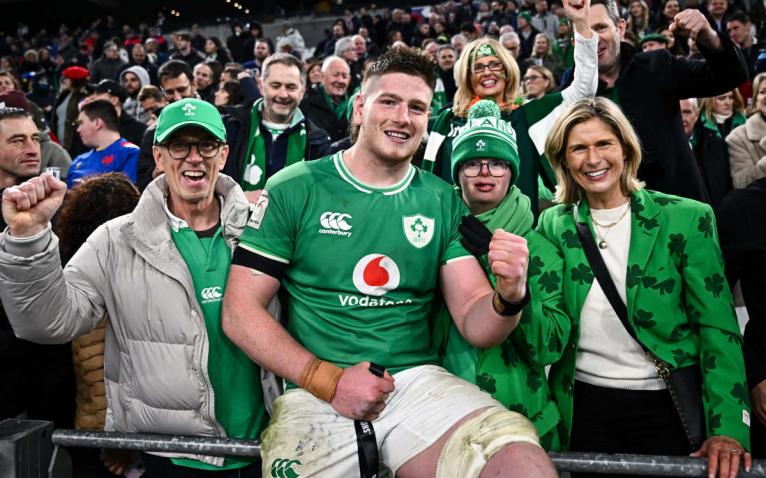
And those players are being fed into the senior set-up, Farrell showing vision as well as bravery to promote athletic, skilled players ahead of those preferred by provincial coaches. Jamison Gibson-Park was the first to avail of this policy but there have been others, McCarthy and Crowley the most prominent.
These are the sort of calls only a brave coach would make, but also one who knows he has backing inside the boardroom. Since 2014, the man backing or sacking Ireland’s coaches has been David Nucifora, a tough Aussie who was appointed their high performance director.
If diplomacy was a sport, Nucifora sure as hell wouldn’t be an Olympian. But he can identify a good coach when he sees one, playing a role in getting Rassie Erasmus, Jacques Nienaber, Stuart Lancaster, Graham Rowntree and Farrell into the Ireland system.
Now it is spring and the harvest is about to come. Three home games and a trip to Twickenham stand between Ireland and a second, successive Grand Slam. No one would have imagined this was possible 25 years ago. Now it is expected.
The last of those names is the key one because a great administrator will always be of less importance than a good coach. And in Farrell, Ireland have a world class one.
There were only 9,253 people in Hamilton on that night in June 2022 when the Maori All Blacks ran through a jet-lagged Irish team. Significantly, though, Farrell was among the crowd, his eyes focusing not just on the game in front of him but also on the future.
Amid a 32-17 defeat he saw his youngest player continuing to carry, tackle and chase even when the result was gone. A seed was planted in his mind about Joe McCarthy.
Now it is spring and the harvest is about to come. Three home games and a trip to Twickenham stand between Ireland and a second, successive Grand Slam. No one would have imagined this was possible 25 years ago. Now it is expected.


No question the Irish “system” has made a huge difference. However, the system still needs quality people in decision-making and other key positions - and not those who are deemed to have “earned” their position through longevity, history or loyalty. This is the feature of note to me. The Irish have 3 NZ players who are major cogs in the team, plus Farrell (English), Nucifora (Aussie), Schmidt (NZ) and others who have been part of the rise in consistency and quality of Irish rugby. It should also be noted that ‘great expectations’ around their RWC 2022 campaign were not met and neither are there any guarantees for this 6 Nations campaign.